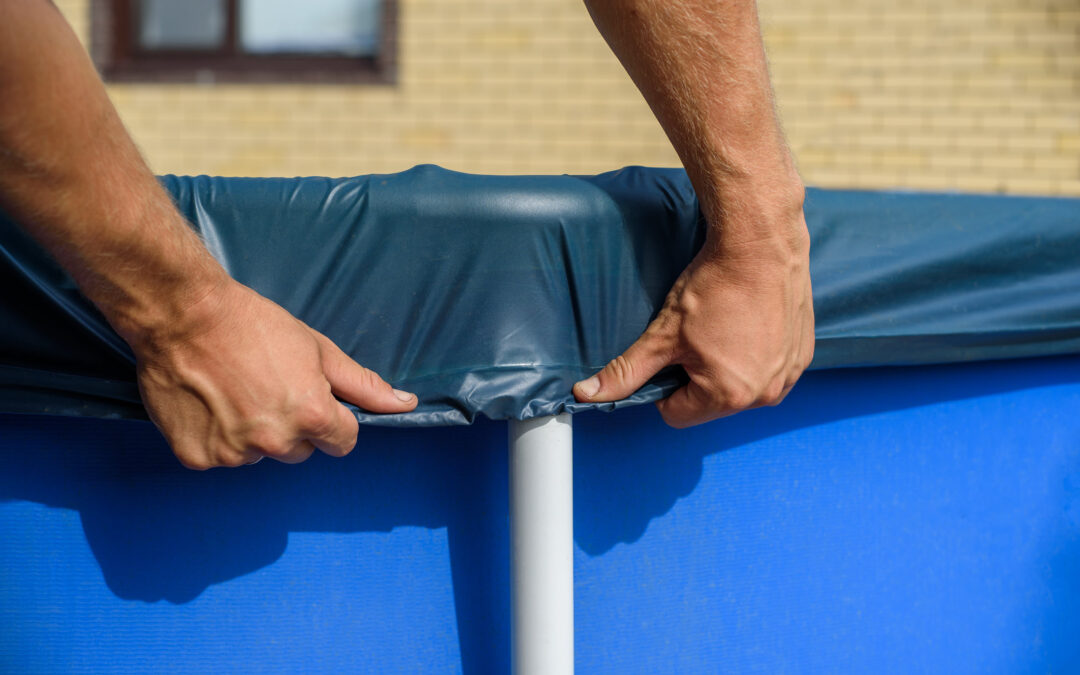Labor Day marks the unofficial end of summer in the United States, and many pool owners begin to think about closing down their pools for the season. However, what you do with your pool after Labor Day can significantly impact its condition and your enjoyment next summer. Below, we’ll explore some essential steps and tips for maintaining your pool after the holiday, ensuring it remains in top shape for years to come.
1. Clean and Balance the Water
Once the Labor Day festivities are over, it’s time to clean and balance your pool water. Remove any debris like leaves, twigs, or insects using a skimmer or a pool vacuum. This prevents organic matter from decaying and clouding the water.
Next, check the water chemistry. Ensure the pH, alkalinity, and calcium hardness levels are within the recommended ranges. This not only keeps your pool water comfortable for swimming but also prevents corrosion and scaling of pool equipment.
2. Reduce Pool Chemicals
Since the pool won’t be used as frequently after Labor Day, it’s a good idea to reduce the amount of chemicals you use. However, don’t completely neglect pool maintenance. Continue to sanitize the water, but you may not need to do it as frequently or with as much product as during the peak summer season.
3. Cover the Pool
Investing in a high-quality pool cover is a smart move after Labor Day. A pool cover keeps out leaves, debris, and sunlight, which can promote algae growth. It also helps maintain water temperature and reduces water evaporation, which saves you money on water and heating costs.
4. Winterize Your Pool (If Applicable)
If you live in an area with cold winters, it’s crucial to winterize your pool properly. This involves lowering the water level, blowing out the pool plumbing lines, and adding winterizing chemicals. Follow the manufacturer’s instructions or consult a professional to ensure your pool is ready for the colder months.
If you don’t winterize your pool properly, several problems can arise, including:
- Freezing Damage:
- Water left in the pool and plumbing lines can freeze during cold winter temperatures.
- Ice expansion can cause cracks and damage to the pool structure, including the walls and floor.
- Frozen water can also rupture pipes and pool equipment, leading to costly repairs or replacements.
- Algae and Bacterial Growth:
- Without proper winterization, the pool water can become a breeding ground for algae and bacteria.
- Algae can stain the pool surfaces and make the water green and unsightly.
- Bacterial growth can create unsanitary conditions that are difficult to remedy.
- Stained Surfaces:
- Leaves, debris, and organic matter that accumulate in the pool can cause stains on the pool’s interior surfaces.
- These stains may require extensive cleaning and treatment to remove, affecting the pool’s appearance.
- Increased Maintenance Costs:
- Neglecting winterization can result in higher maintenance costs in the spring.
- Cleaning, repairing, and treating the pool to restore it to proper condition can be time-consuming and expensive.
- Shortened Equipment Lifespan:
- Pool equipment, such as pumps, filters, and heaters, can be damaged if not properly prepared for winter.
- Exposure to freezing temperatures can cause components to crack or corrode, reducing their lifespan and efficiency.
- Delayed Pool Opening:
- If your pool is not winterized, opening it for the next season can be delayed.
- You’ll need to spend extra time and effort cleaning and balancing the water, which may postpone the start of swimming season.
- Safety Concerns:
- An improperly winterized pool can be a safety hazard, especially if it’s not covered.
- Uncovered pools can be a risk to children and pets who might accidentally fall in.
- Increased Water and Energy Costs:
- If the pool is not covered, it can lose a significant amount of water due to evaporation.
- Additionally, the pool heater may have to work harder to maintain a stable temperature, leading to higher energy bills.
5. Regular Maintenance
Even though swimming season may be over, don’t completely neglect your pool. Regularly check the pool cover for any damage or debris buildup. If you notice any issues, address them promptly to prevent further damage.
Periodically pump off excess rainwater or snow from the pool cover to prevent it from sagging or tearing. Additionally, make sure your pool equipment is protected from the elements or stored in a safe, dry place.
6. Plan for Next Year
Use the post-Labor Day period to plan for next year’s pool season. Consider any upgrades or renovations you’d like to make, whether it’s resurfacing the pool, updating the filtration system, or landscaping around the pool area. This is also an excellent time to take advantage of end-of-season sales on pool supplies and equipment.
Taking care of your pool after Labor Day is essential for preserving its longevity and ensuring it’s ready for another summer of fun. By following these steps, you can maintain your pool’s water quality, protect it from debris and the elements, and prepare it for winter if necessary. Remember that proper pool maintenance now will save you time and money when you’re ready to dive back into your oasis next year.
If you have any more questions, call Island Pool and Spa of Tenafly, NJ to speak with one of our professionals!

